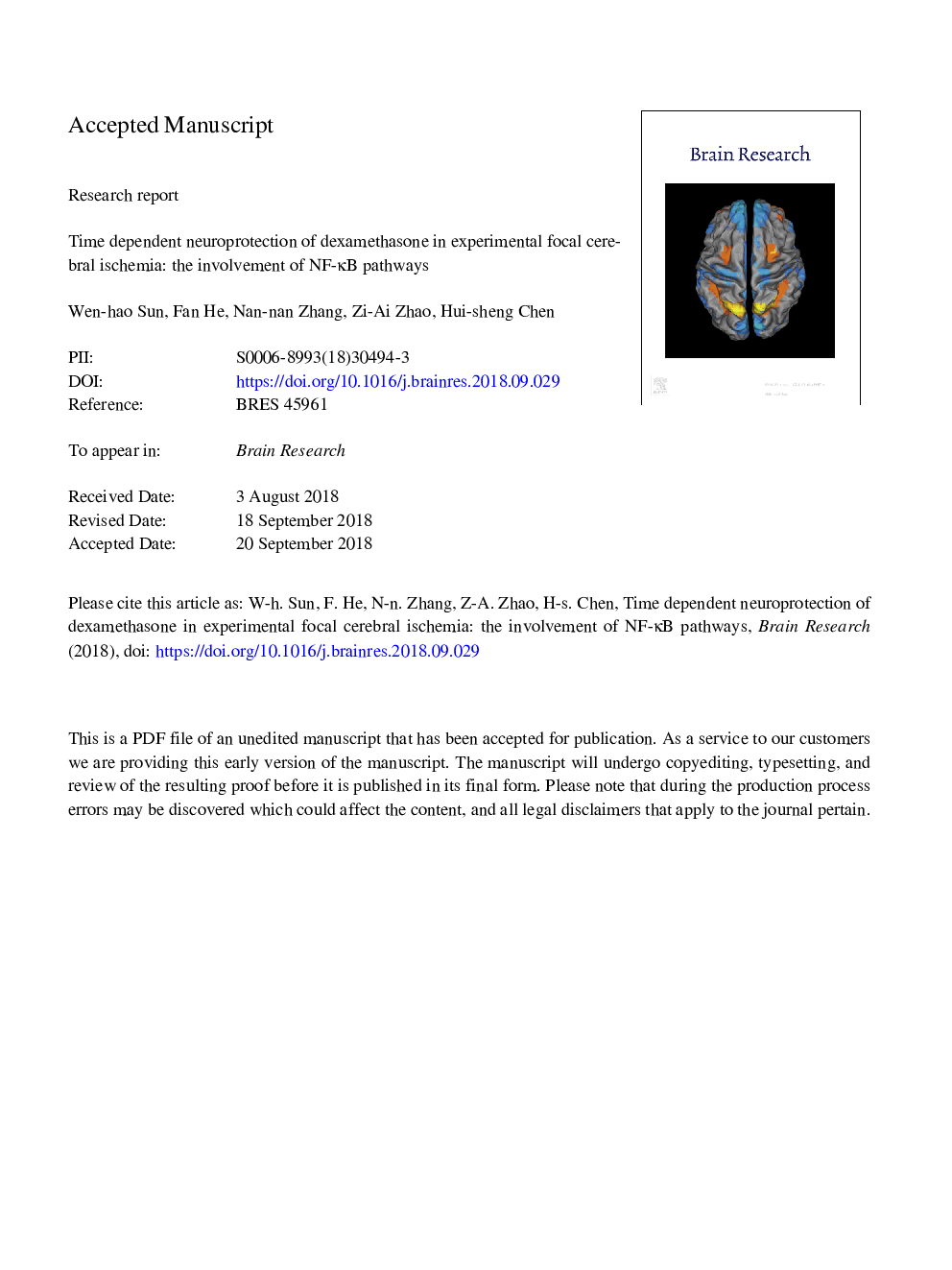| Article ID | Journal | Published Year | Pages | File Type |
|---|---|---|---|---|
| 11033458 | Brain Research | 2018 | 18 Pages |
Abstract
We propose that the neuroprotective effect of glucocorticoid in ischemic damage may be time dependent. The present study was designed to test the proposal and its possible mechanism in cerebral ischemia/reperfusion (I/R) injury model. Reperfusion injury was induced after 120â¯min of middle cerebral artery occlusion (MCAO) in male Sprague-Dawley rats. At different time points after MCAO, rats were treated with high dose dexamethasone (10â¯mg/kg), and neurological deficit and infarct sizes were measured 2â¯h, 24â¯h after MCAO. The expression of NF-κB target genes, including inducible nitric oxide synthase (iNOS), cyclooxygenase (COX-2), tumor necrosis factor-α (TNF-α) and interleukin-1β (IL-1β), were determined by western blot analysis and ELISA. Dexamethasone delivered 30â¯min (but not 60â¯min, 120â¯min) after MCAO markedly decreased the infarct size, improved neurological deficits in I/R injury model. Dexamethasone delivered 30â¯min (but not 60â¯min) after MCAO significantly inhibited NF-κB p65 expression and phosphorylation, compared with I/R group. The expression of iNOS, COX-2, TNF-α and IL-1β, were also suppressed by dexamethasone delivered 30â¯min (but not 60â¯min) after MCAO. The results imply that neuroprotective action of dexamethasone in focal ischemic stroke model may be time dependent and attributed to inhibiting inflammation-related NF-κB p65 pathways.
Keywords
Related Topics
Life Sciences
Neuroscience
Neuroscience (General)
Authors
Wen-Hao Sun, Fan He, Nan-Nan Zhang, Zi-Ai Zhao, Hui-Sheng Chen,
